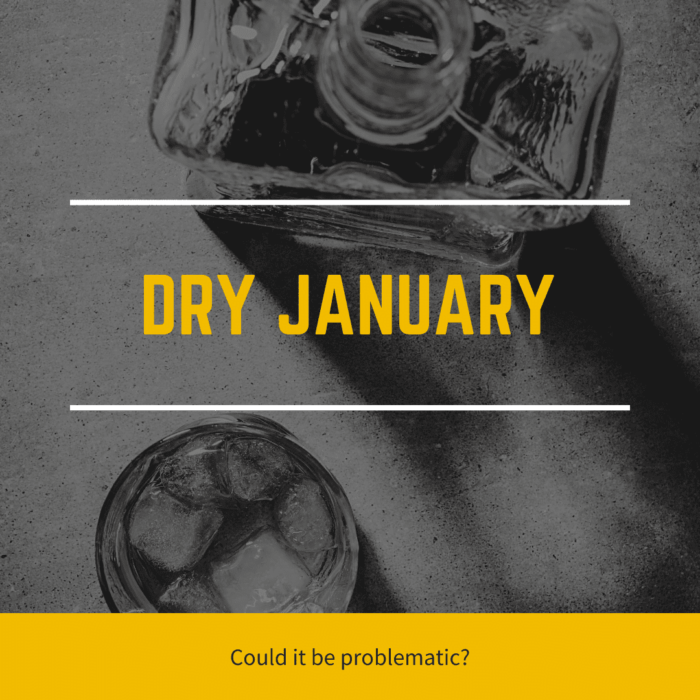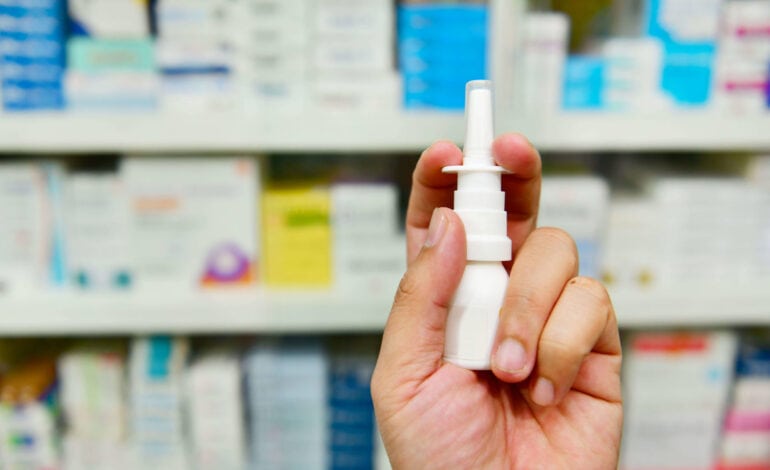Can Dry January Be Problematic?
“Dry January” has a good ring and has been used as a successful marketing campaign to encourage people to refrain from drinking for the entire month of January, similar to a New Year’s Resolution.
According to one poll, as much as one-fifth of the U.S. population participates in Dry January, which originated in the United Kingdom a decade ago.
Although refraining from alcohol or trying to cut back is good, as less alcohol intake is generally better for your mental and physical health, quitting alcohol for 30 days can potentially be dangerous if you are a chronic or heavy drinker. It can also be seen as a shortsighted attempt to potentially push chronic underlying triggers associated with an alcohol use disorder under the rug. For example, individuals may misuse alcohol as a crutch to deal with underlying behaviors and stressors such as depression, anxiety, workplace or personal turmoil, or financial stress, and “quitting” alcohol use for 30 days without the proper support systems and therapeutic interventions may leave these stressful triggers exposed.
Assessing your “why” behind Dry January
Although quitting or cutting back on alcohol consumption is always a good idea, especially after the holidays when alcohol is often over-consumed, it is always best to consider the “why” you are choosing to cut back or quit drinking.
- Are other individuals in your life telling you that you drink too much?
- Is alcohol getting in the way of your home or work responsibilities?
- Are you experiencing alcohol withdrawal symptoms or hangovers?
- Do you feel you need a drink to take the edge off?
- Do you primarily consume alcohol when you are stressed or depressed?
If one or more of the following statements holds true for you and your alcohol consumption, it may be a wise idea to seek help from a treatment professional before you start cutting back or quitting alcohol during “Dry January”.
Alcohol dependence and withdrawal
Dependence is a physiological adaptation of the body to a substance, wherein the body becomes so used to alcohol being present in the system that withdrawal symptoms emerge when the individual cuts back on their use or quits. With significant levels of physiological dependence, a person may continue to drink compulsively to avoid unwanted withdrawal symptoms. Alcohol (and benzodiazepines) can have dangerous withdrawal symptoms if an individual using alcohol in high amounts or for long periods cuts back or quits drinking. Alcohol withdrawal symptoms include the following:
- Nausea and vomiting
- Anxiety
- Tremors/shakiness
- Sweating
- Insomnia
- Elevations in heart rate and blood pressure
- Hallucinations
- Seizures
Treatment professionals recommend that individuals who drink chronically or in excess amounts seek treatment to avoid dangerous withdrawal symptoms. Detoxification is the first step in the treatment process and aims to rid the body of alcohol. Alcohol detoxification is often done in a safe and supportive treatment setting where medications are administered to ease withdrawal symptoms and prevent any life-threatening complications associated with alcohol withdrawal. Detoxification is the starting point in the long journey of alcohol addiction treatment. Once an individual completes the detoxification portion of treatment, they can go into a formal treatment setting that addresses the underlying triggers associated with their alcohol misuse.
“If you are concerned about your drinking in any way, Dry January may not be for you. You may need additional support. Two indicators of a more severe problem are not being able to control the amount you take in when you start drinking, and not being able to stop for a period of time on your own devices.” – Adam Wick, MA, LADC-S
“I don’t recommend dry January for people who have active eating disorders because it is another extension of the diet merry-go-round of either allowing or not allowing a certain food or drink. If you have an eating disorder and want to drink less, it is best to approach it as a lifestyle change versus a month off alcohol.” – Anna Hindell, LCSW-R, CIYT
The importance of support groups
Alcohol support groups, whether in-person or virtual, can significantly impact abstaining from alcohol in a positive way. Alcohol support groups, whether through an addiction treatment center or the general public, allow you to connect with other individuals experiencing a similar journey to abstaining from alcohol. In addition, support groups will enable you to share your daily journey from the highs and lows while learning about underlying triggers associated with your alcohol misuse and positive coping skills to help you navigate these challenging times.
Alcohol addiction treatment
When trying to cut back on alcohol consumption or abstaining altogether, enrolling in a professional alcohol addiction treatment program may be wise, especially if you are at risk for withdrawal symptoms. Professional alcohol addiction treatment such as AKUA Mind and Body gives you the tools to succeed on your journey to sobriety. Addiction treatment programs provide medications and behavioral therapy approaches to alleviate signs and symptoms associated with withdrawal and help you with future urges and cravings.
Addiction treatment centers can diagnose and treat any underlying co-occurring mental health disorder, such as depression and anxiety, that often co-occur with an alcohol use disorder. Frequent or heavy drinking can result in a mental health disorder. Many individuals struggling with a mental health disorder may use alcohol as a coping mechanism to alleviate any unwanted feelings, emotions, and stressors. When you try to abstain from drinking on your own during Dry January, you may find yourself severely struggling because of an undiagnosed co-occurring mental health disorder.




